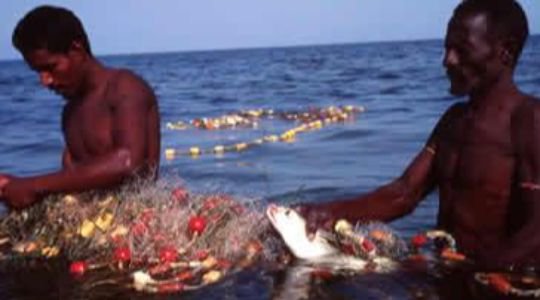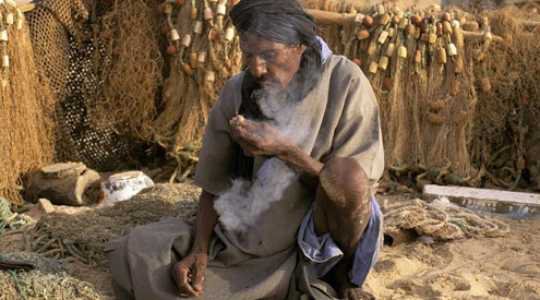They are known as the “Imraguen”, a Berber word which means “fishermen” or “people who fish while walking on the sea.”Believed to descend from the Bafour people, the Imraguen are an ethnic group or tribe of Mauritania and Western Sahara.
The Imraguen are believed to descend from the Bafour people According to the Documentation of the human population of the territory, the Imraguen people lived in the Banc d’Arguin National Park for thousands of years, and its population had probably been larger.
Militarily powerless, the Imraguen were traditionally reduced to the degrading lower-caste status of Znaga, forcibly ruled and taxed (horma) by more powerful Berber, Hassane and Zawia tribes, such as the Oulad Delim and Ouled Bou Sbaa. In 2008, the Imraguen people occupied 9 small villages along the coastline.
Some Imraguen populate the abandoned La Güera fort, which is also the south point of the Western Sahara zone claimed by Morocco. A few generations ago, the Imraguen people used to whistle the dolphins to bring them near the shore and catch all the mullets that always followed the dolphins.
The Imraguen people are the only ones allowed to fish in the Banc d’Arguin area, as long as they use their traditional fishing techniques. The number of fishes caught for each species is limited and strongly reinforced by the Mauritanian authorities.
In 2004, the Imraguen people agreed to preserve the shark and ray species in the Banc d’Arguin National Park (which became a UNESCO world heritage site in 1989) and traded their nets for money.
Traditionally, the men deal with the fishing of mullet and shade-fish in the shallow waters of the park whilst the women produce roe, tishtar (small pieces of dried and crumbled mullet), and mullet oil, passing on this knowledge and techniques to their children.
With wooden sailboats or just wading into the shallows and flinging their nets, the men have maintained their traditional fishing methods, including working with dolphins to catch more fish. They document it that a few generations ago, the Imraguen used to whistle the dolphins to bring them near the shore and catch all the mullets that always followed the dolphins.
In recent years, this cooperation between the Imraguen and the dolphins and other traditional fishing methods seems to die due to threats from immigrant and industrial fishing activities.




















